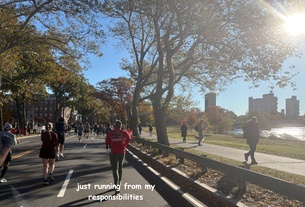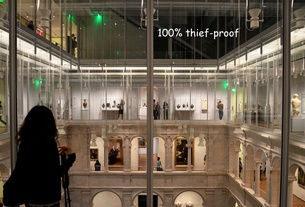When leaders of the Undergraduate Council led Interim Dean of the College Donald H. Pfister into the Adams House Lower Common Room one Friday in early May, they told him they would be discussing student transportation.
But with balloons, cupcakes, mushrooms, and dozens of undergraduates waiting in the room, it quickly became clear that policy was not up for discussion. While one excited participant instinctively suggested singing happy birthday, there was no confusion as to why the UC had arranged the surprise party: to congratulate and thank Pfister for his work in the last year.
{shortcode-949caafcdce39c8e3aaf539803fd8cd34f670846}
Just a couple of days later, professors and administrators gathered in University Hall for the last full Faculty of Arts and Sciences meeting of the year rose to applaud Pfister, who will step down from the position of dean of the College this summer, after ushering the school through a year of transition.
The scene was markedly different from one that had unfolded in the same room just a year prior, when faculty members at their end-of-year meeting peppered administrators with questions about governance and trust. That meeting proved to be an inflection point in a tumultuous academic year that began with the College’s largest cheating scandal in memory and ended with revelations of secret email searches and, ultimately, the resignation of Evelynn M. Hammonds from the College deanship.
A year after she left office, the strain and strife that roiled the College community under Hammonds has largely been assuaged by her successor, students and administrators say. Improved relations between the Dean’s Office and other parts of the College administration and student body have slowly restored trust, and with it, a sense of productive normalcy.
As the interim year comes to a close and University Hall prepares to welcome its third College dean in just over a year, students, faculty, and administrators say that for all he has accomplished, Pfister has served his role without introducing substantial reforms, setting the stage for incoming dean Rakesh Khurana to chart a more permanent vision for Harvard’s flagship school.
THE SHADOW OF SCANDAL
Pfister moved into his office in early July 2013 and eased into his position at the helm of an administration largely left in disarray.
A breakdown in relations in the spring had led students to question the actions of administrators, some even calling for the then-College dean to resign from her position. At the same time, Faculty members spoke of a loss of trust with FAS and College administrators, who they felt had violated their email privacy policy and infringed upon principles of academic freedom.
All the while, College staff found it difficult to address day-to-day duties, as the administration careened from one scandal to another.
The first had come in late August 2012 in the form of an investigation into about 125 students suspected of improper collaboration on a final take home exam. Even as the University sought to protect the confidentiality of the disciplinary process by declining to reveal the identities of those being investigated, media organizations published confidential information, increasingly worrying administrators about the source of the suspected leaks.
Faced with concerns that the Administrative Board’s confidentiality had been compromised, Hammonds and FAS Dean Michael D. Smith secretly authorized the search of all resident deans’ administrative email accounts.
Come springtime, when those searches came to light, administrators would face a second scandal, one that would permanently sour perceptions of the dean of the College among students and faculty members.
{shortcode-74e90f7fcc87c5b6c99954ae4beeec1a4f6529ea}


